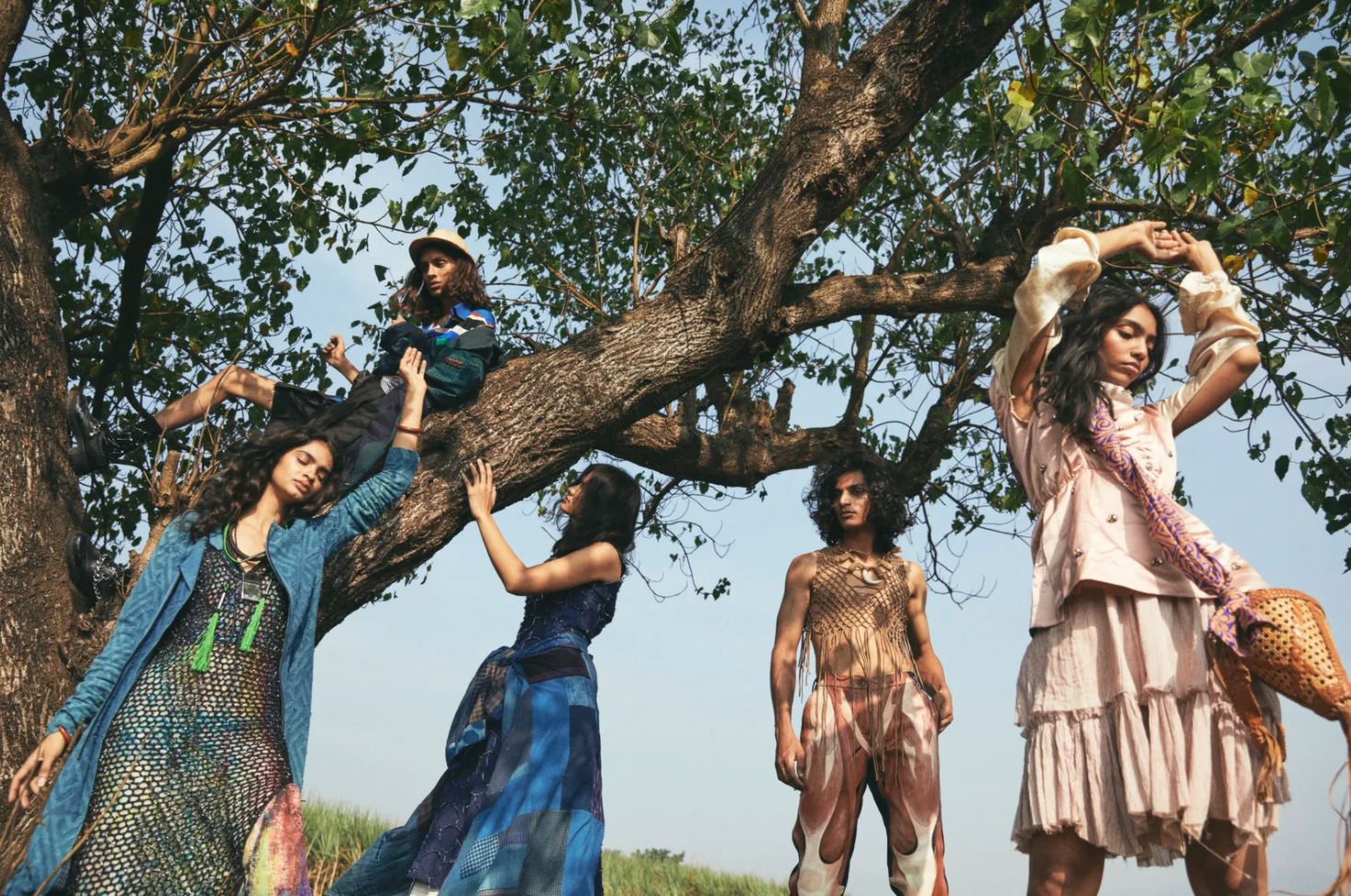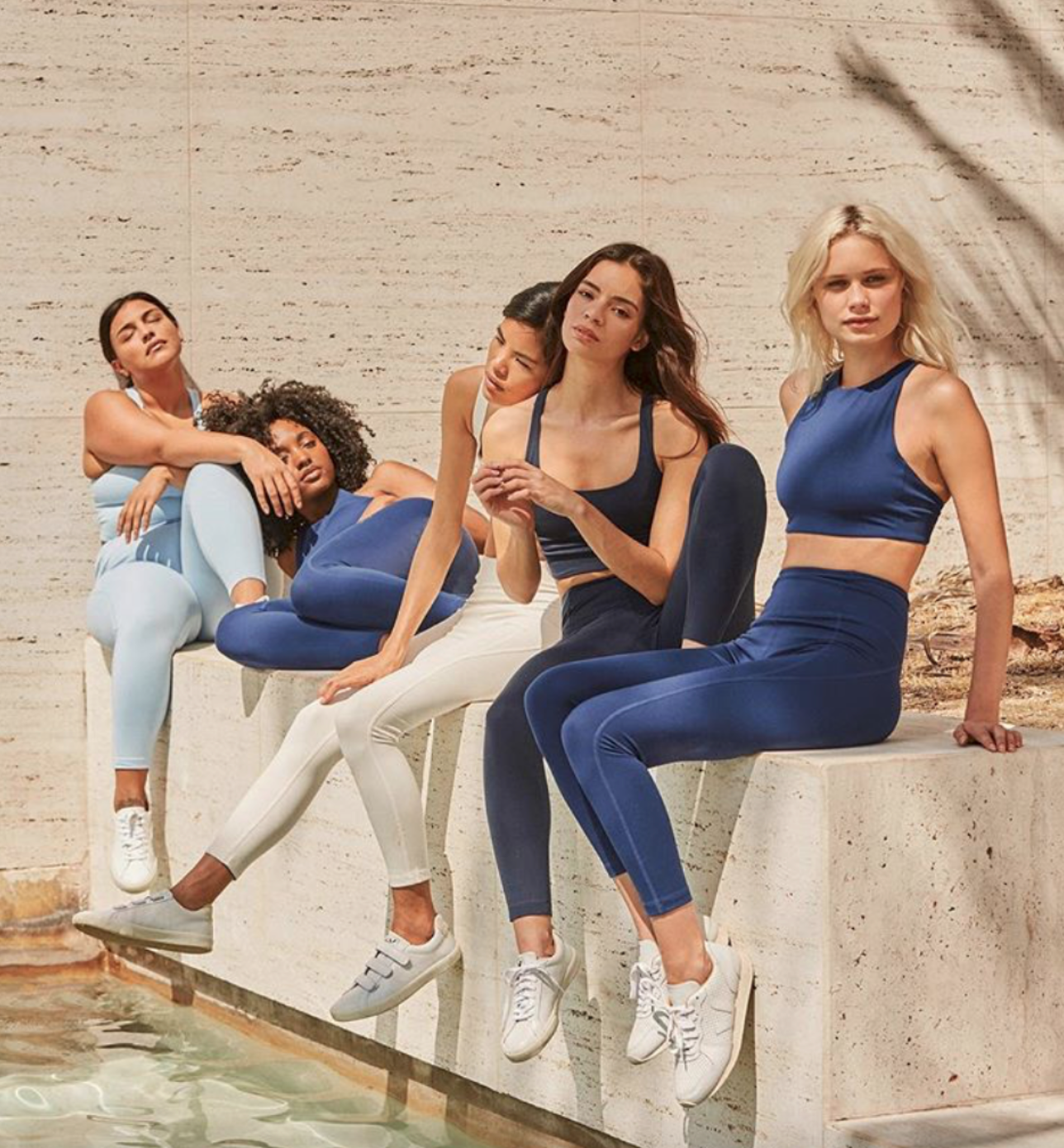The Truth Behind Transparency & Sustainability in Fashion
Sustainability in fashion has become a hot button issue. The fashion industry is one of the most polluting and wasteful industries, which needs to change. Some brands are committed to sustainability and transparency, while others put forth misleading claims of sustainability that mask the truth. Fast fashion has been a huge proponent in textile waste and human rights labor violations. Brands like Shein, H&M, and Zara are major players in fast fashion. They produce clothes faster than they can sell it, which not only encourages overconsumption, but also creates a vicious cycle of waste in the fashion industry. However, there has been a movement to a more sustainable fashion industry. Brands are coming out with new sustainable initiatives left and right, but are they all truly sustainable?
COURTESY OF VOGUE
Determining whether or not a brand’s sustainability claims are sincere is difficult for consumers. Greenwashing is a major obstacle in fashion. Brands continue to mislead consumers about their sustainability efforts and make vague claims. “100% sustainable” and “made from recycled materials” may paint the brand as environmentally friendly, but what is important in determining eco-conscious brands is the support and facts that back those claims up. Third party certification, such as fair trade, B Corp, and OEKO-TEX provide brands with support to their claims. Brands can also step up and share all the facts with consumers.
Transparency is the most important part of sustainability in fashion and can help filter out greenwashing. Brands that inform consumers of exactly where and how their merchandise is made are taking the right steps to show their truthful commitment to sustainability. An amazing example of a sustainable brand that follows through on their claims and is completely transparent with consumers is Girlfriend Collective, which is an activewear brand. Their website takes you through step by step of their supply chain. They are transparent about where they source their recycled plastic fabric from and about all the factories and manufacturing facilities that their products go through. They even inform consumers about the treatment of workers in their facilities. Their environmentally and socially conscious business practices should be the standard for all fashion brands.
COURTESY OF ELLE
On the other side of the sustainability spectrum is Shein, which recently launched its new “sustainable” collection. The EvoluShein collection is said to use responsibly sourced materials, inclusive sizing, and it will support global women’s empowerment movements. This campaign is nothing more than a band-aid approach to improving sustainable practices. The fast fashion giant comes out with thousands of new styles a day at cheap prices. The poor quality of the clothing means that people cycle through clothes faster and throw out more clothes. One so-called sustainable collection is not going to fix the deep rooted environmental and social issues.
As a conscious consumer, you always want to do your research and find which companies are telling the truth. A healthy amount of skepticism is good to have when shopping for new sustainable clothes. Looking for third party certifications and checking a brand’s manufacturing practices are good ways to determine if a brand is truly committed to sustainability. There’s no quick fix for all the sustainability issues in the fashion industry, but identifying greenwashing and supporting brands committed to sustainability and transparency is a step in the right direction.



